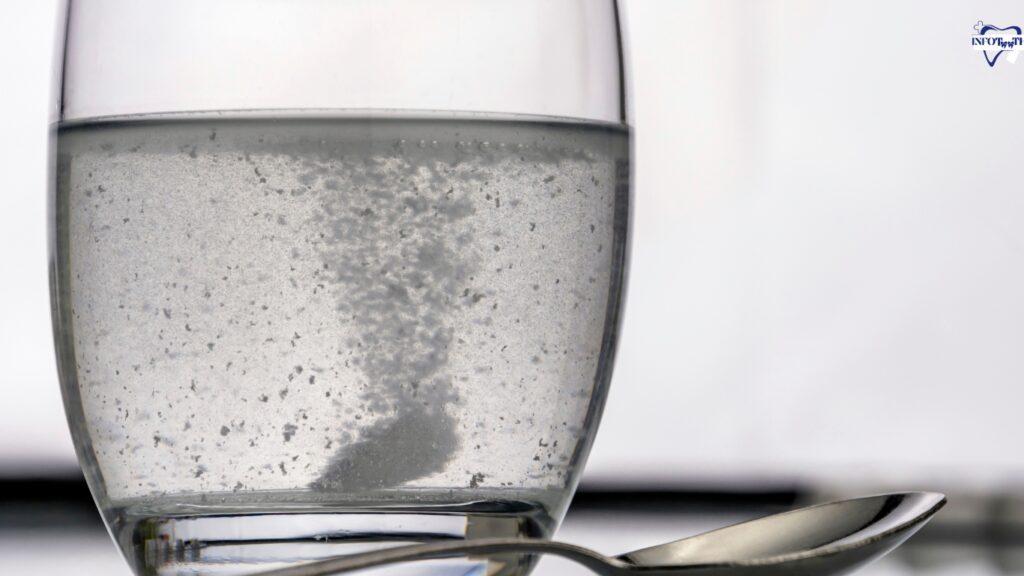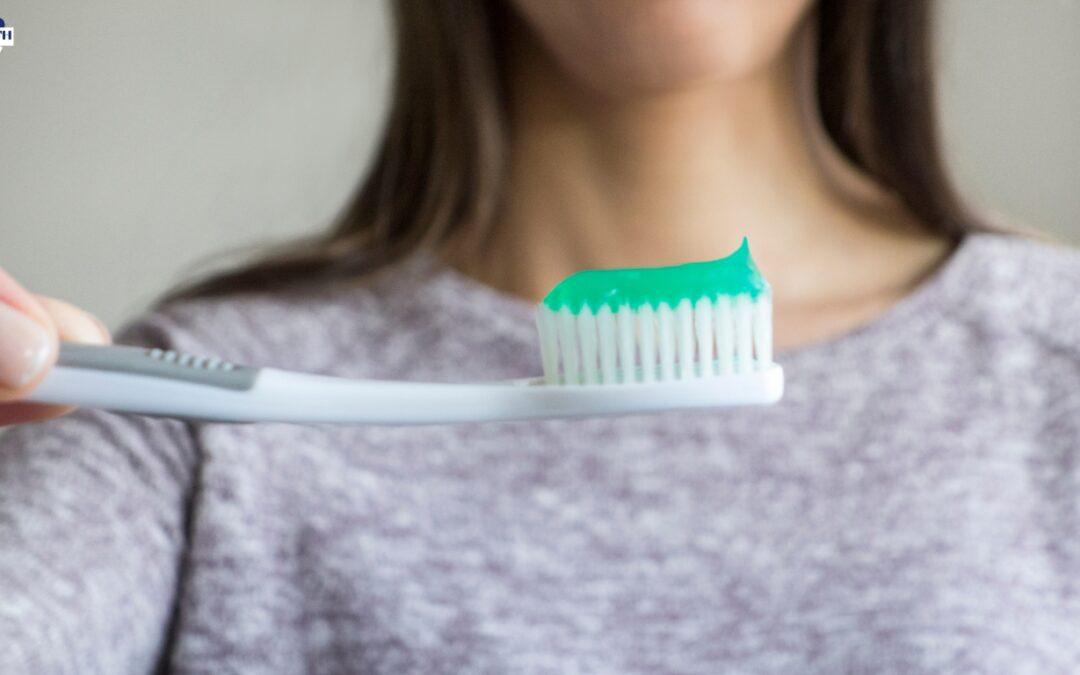People frequently use salt and other items as cures or cosmetics to get a whiter smile. However, is it true that “Can Salt Make Your Teeth White?” This blog explores the long-standing topic, sorting reality from fiction and delving into the science underlying salt’s alleged whitening abilities. We hope to dispel popular misconceptions and shed light on the question of whether salt may actually make your teeth whiter and brighter.
Table of Contents
Understanding the Role of Salt in Dental Care
Investigating salt’s numerous qualities and possible advantages for oral health is necessary to comprehend its role in dental care. Sodium chloride, or salt, has been used in dentistry for ages because of its inherent abrasive properties. This abrasiveness promotes a cleaner and healthier oral environment by assisting in the removal of plaque and tartar accumulation from the teeth.
Furthermore, “Can Salt Make Your Teeth White?” salt has inherent antibacterial qualities that help it effectively reduce oral germs. This can support maintaining good dental hygiene and preventing infections. Because of its antibacterial qualities, salt has also long been used as a treatment for oral conditions like sore throats and gum irritation.
In toothpaste and mouthwash, among other oral hygiene products, salt is frequently added in modern dentistry. It is thought that salt-based formulas provide a mildly abrasive alternative to some commercial teeth-whitening and cleaning treatments.
In general, salt is useful for dental care. Still, it should only be used sparingly and in concert with other oral hygiene procedures. People can choose wisely when adding salt to their oral hygiene regimens for better dental health and hygiene by being aware of the qualities of salt and its possible advantages.
Can Salt Make Your Teeth White Or Not?
Dental experts disagree on the usefulness of salt in teeth whitening procedures. Although salt has abrasive qualities that can aid in removing plaque and surface stains, there isn’t much scientific evidence to support its claim that “Can Salt Make Your Teeth White?”
Because of its antibacterial qualities, salt may assist in maintaining dental cleanliness and give the mouth a fresher feeling. But if used excessively or incorrectly, its abrasive nature can also be dangerous, possibly causing enamel loss and dental discomfort.

Although some people may assert that taking salt has whitened their teeth, the benefits might differ greatly based on a number of variables, including diet, oral hygiene practices, and pre-existing dental issues. It’s important to use caution while using salt-based whitening techniques and seek the advice of a dental expert for specific advice.
“Can Salt Make Your Teeth White?” In the end, although salt might be good for your dental health, using it just to whiten your teeth might not work so well. Scientifically proven alternative whitening techniques, like in-office or professional dental procedures, might produce more consistent and reliable outcomes.
Pros and Cons of Using Salt for Teeth Whitening
The use of “Can Salt Make Your Teeth White?” may have advantages as well as disadvantages. Consider the following benefits and drawbacks:
Pros:
Natural Abrasive Properties: The abrasive properties of salt can aid in the removal of plaque and surface stains, leaving your smile looking cleaner and more radiant.
Antimicrobial Characteristics: Due to its inherent antiseptic qualities, salt can lower oral bacteria levels, encouraging improved oral hygiene and perhaps averting illnesses.
Cost-effective: Compared to professional whitening solutions, salt is a cost-effective substitute because it is easily accessible and reasonably priced.
Fewer adverse Effects: Compared to severe chemical treatments, salt-based whitening procedures usually have fewer adverse effects when used in moderation.
Cons:
Enamel Erosion: Too much or incorrect salt use for teeth-whitening can cause enamel erosion, which raises the possibility of tooth sensitivity and other dental problems.
Restricted Whitening Effects: Salt can assist in getting rid of surface stains, but it can’t make teeth any whiter than they already are. The outcomes can differ greatly among people.
Possibility of Tooth Sensitivity: Salt’s abrasive properties may make teeth more sensitive, particularly in people who already have dental issues.
Lack of Scientific Evidence: The effectiveness of salt as a stand-alone whitening agent is not well supported by scientific research. The degree of effectiveness may differ based on personal behaviors and dental health.
Safe Practices: How to Use Salt for Teeth Whitening Safely
When done correctly, using salt to whiten teeth might be beneficial. The following are safe procedures to adhere to:

- Dilute Salt in Water: Dilute salt in water to provide a mild brushing or washing solution to reduce abrasiveness. This lessens the possibility of enamel deterioration.
- The Key Is Moderation: Use salt-based teeth-whitening techniques sparingly; best, combine them with other, regular dental care procedures as an additional treatment. Damage to the enamel and dental discomfort can result from overuse.
- Refrain from Scrubbing: Refrain from excessively cleaning your teeth after applying salt directly. Instead, to avoid friction and possible enamel loss, employ soft, circular motions.
- Keep an Eye on Tooth Sensitivity: When using salt for teeth whitening, be mindful of any indications of increased sensitivity or pain. Stop using the product and see a dentist if sensitivity continues.
- Combine with Continual Oral Care: Include salt-based whitening treatments in a thorough oral care regimen that includes frequent dental examinations, flossing, and brushing. This promotes the general health of your teeth.
- Speak with Dentists: See a dentist before attempting any salt-based do-it-yourself teeth-whitening techniques. When it comes to your dental health, they can offer tailored advice and, if needed, safe substitutes.
Baking Soda And Salt For Teeth Whitening
Combining baking soda and salt for teeth whitening is a popular natural remedy that harnesses the abrasive and cleansing properties of both ingredients. Baking soda, or sodium bicarbonate, is known for its mild abrasive nature, which helps remove surface stains and plaque from the teeth. It also creates an alkaline environment in the mouth, which can help neutralize acids and prevent tooth decay.
“Can Salt Make Your Teeth White?”, specifically table salt or sea salt, also possesses abrasive properties that aid in scrubbing away stains and bacteria from the teeth. Additionally, salt has natural antiseptic properties, which can help reduce oral bacteria and promote better gum health.

When combined, baking soda and salt create a potent mixture that can effectively brighten and cleanse the teeth. To use this mixture for teeth whitening, simply mix equal parts baking soda and salt with a small amount of water to form a paste. Then, gently brush the paste onto your teeth using a soft toothbrush, taking care to avoid excessive scrubbing to prevent enamel erosion.
While baking soda and salt can offer some benefits for teeth whitening, it’s essential to use this mixture sparingly and in conjunction with regular oral care routines. Excessive or improper use may lead to enamel damage and tooth sensitivity. Consulting with a dental professional before trying any DIY whitening methods is recommended to ensure safety and effectiveness.
Conclusion
In conclusion, “Can Salt Make Your Teeth White?” salt may be beneficial for dental health due to its abrasive and antibacterial qualities. However, it is still unclear how efficient it is at dramatically whitening teeth. Even though some people could see slight colour improvements in their teeth, not everyone will see noticeable effects from using salt alone for teeth whitening. It’s important to use caution while using salt-based whitening treatments and think about getting professional advice from a dentist. In the end, preserving proper oral hygiene habits and taking into account alternate whitening methods might be more successful in producing a whiter smile.
FAQs
Q: Is salt an effective tooth whitener on its own?
A: Salt can help remove surface stains and may have some abrasive characteristics, but it won’t significantly whiten teeth. Individual differences in outcome mean that using salt alone to whiten teeth may not result in appreciable changes to tooth colour.
Q: How frequently should I whiten my teeth with salt?
A: Salt-based whitening techniques should only be used in moderation, ideally as an adjunctive treatment to good dental hygiene practices. Too much use might cause dental sensitivity and degradation of the enamel.
Q: Are there any dangers involved in using salt to whiten teeth?
A: Indeed, overindulging in salt or using it improperly can cause tooth sensitivity, erosion of the enamel, and other dental problems. Before attempting any homemade whitening techniques containing salt, it is imperative to observe safety precautions and speak with a dental expert.
Q: Can at-home teeth-whitening techniques be substituted for in-office procedures?
A: Salt does not replace expert dental care, even if it might have some benefits for dental health and slight whitening effects. Dentists often undertake professional whitening techniques that are more effective and yield results that stay longer.
Q: Aside from salt, are there any other natural teeth-whitening remedies?
A: Yes, it is thought that a number of alternative natural therapies, like hydrogen peroxide, baking soda, and activated charcoal, have bleaching properties. To guarantee safety and efficacy, you must speak with a dentist before attempting any at-home whitening techniques.

